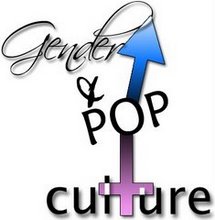The role of mother, within many forms of media, often carries with it certain connotations. Mothers within the media are often portrayed as caring, nurturing, problem-solving, patient individuals. They are often the cool, calm, collected and understanding part of the parental dynamic. Many would say that the media holds mothers in high regard when one considers all of the qualities it associates with being a mother, but these unwritten definitions can have very negative and even damaging effects.
Obviously, there aren’t many people who would argue that being called caring, nurturing, and problem-solving is insulting. Many would say that this depiction of mothers is positive and complementary. The problem, however, with this seemingly positive depiction is that is says “this is a mother” rather than “a mother can be this.” Unfortunately, this seemingly positive depiction, results in the alienation of all women who have children and don’t fit this mold. The question that I propose is this, “Can someone be a good mother without fitting the mold?” There is no anime better than Happy Lesson to explore that question.
Happy Lesson is the story of a young boy named Chitose Hitotose that is orphaned in his early teens. After spending some time in an orphanage, he eventually moves back into the house his parents left him with five of his teachers who act as Chitose’s mothers. Each of the mothers contributes to Chitose’s guardianship in a different way because their personalities are all so different. Together they provide an environment in which Chitose can learn everything he needs to know about life, while also getting more than enough motherly love…whether he wants it or not. Though unusual and probably not likely to ever take place in reality, one would say that in the anime Chitose is very well taken care of by his mothers, however, none of them fits the definition of mother. For example, Chitose’s science teacher, Kisaragi Ninomai, is incredibly introverted, seemingly emotionless, and incredibly reckless with her scientific pursuits; hardly the nurturing problem-solver. Her influence on Chitose, however, is irreplaceable and essential to Chitose’s development. So while she is a problem-causing stoic, she is ever bit the mother of Chitose all of the others have become, even if she doesn’t seem to be as mothers have come to be defined. Yayoi Sanzenin, Chitose’s school nurse turned mother, both fits the mother mold and doesn’t. She is calm, collected, and protective of Chitose, but she also is often seen drawing the sword she keeps in her waist and putting it against Chitose’s throat when his actions disagree with her wishes. She’s eccentric and often destructive, but just like Ninomai, she is irreplaceable. [Of course the constant sword threat would in reality be taken more seriously than I have. In Anime it is understood as a sign of an over-aggressive nature rather than a propensity to actual violence.]
Happy Lesson is a perfect example of how a mother can be a great parental figure without following socially accepted associations with motherhood. Unfortunately, the lesson that Happy Lesson teaches is not so readily applied to the actions of the real world when they feel a woman is a poor parental figure. In the book, “Bad” Mothers: The Politics of Blame in 20th Century America, author Norma Coates discusses how Courtney Love is often considered a terrible mother by the media. From what most of have been shown, the assumption that she is not at all a calm, collected, nurturing, problem solver would be an understandable one. Without getting into whether or not that is actually the case and supposing she isn’t, does it even matter? Considering the argument that Happy Lesson puts forth, that a mother need not be a mother to be a mother, should we leap at the chance to attack Courtney Love (and countless others) because they don’t fit the mold?


2 comments:
Interesting take on the issue of motherhood in relation to your topic, Leo! I think it's worth noting that the motherhood as idyllic depiction is probably quite related to the positionality of anime outside of mainstream popular culture. As someone whose studied dystopic and Utopian visions for change (so extensively, I just may be beyond certifiably dorky :o) it's rare to see the counter-hegemonic portrayal in the mainstream depictions...why is happy lesson able to show this non-pathological mother (and as you point out- sounds absurd when stated, but clearly inhabits much of pop culture's normative depictions and understandings of motherhood and specific mothers)? Overall you've done a very good job here!
Post a Comment